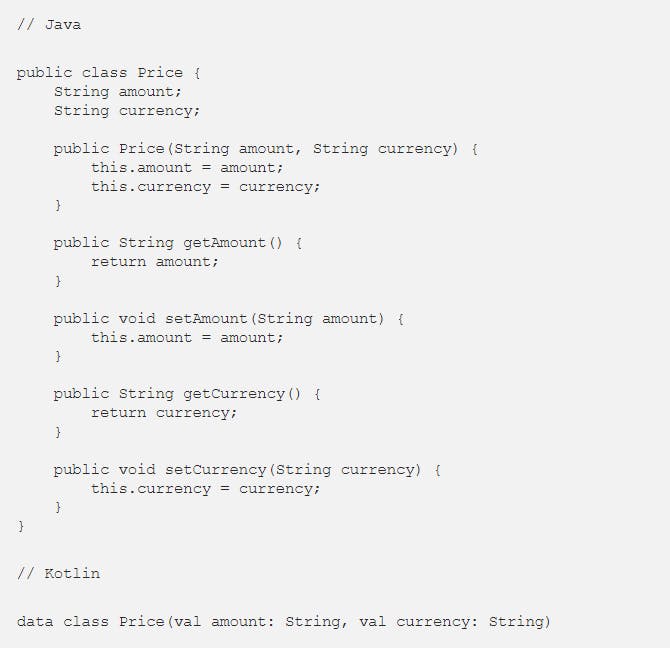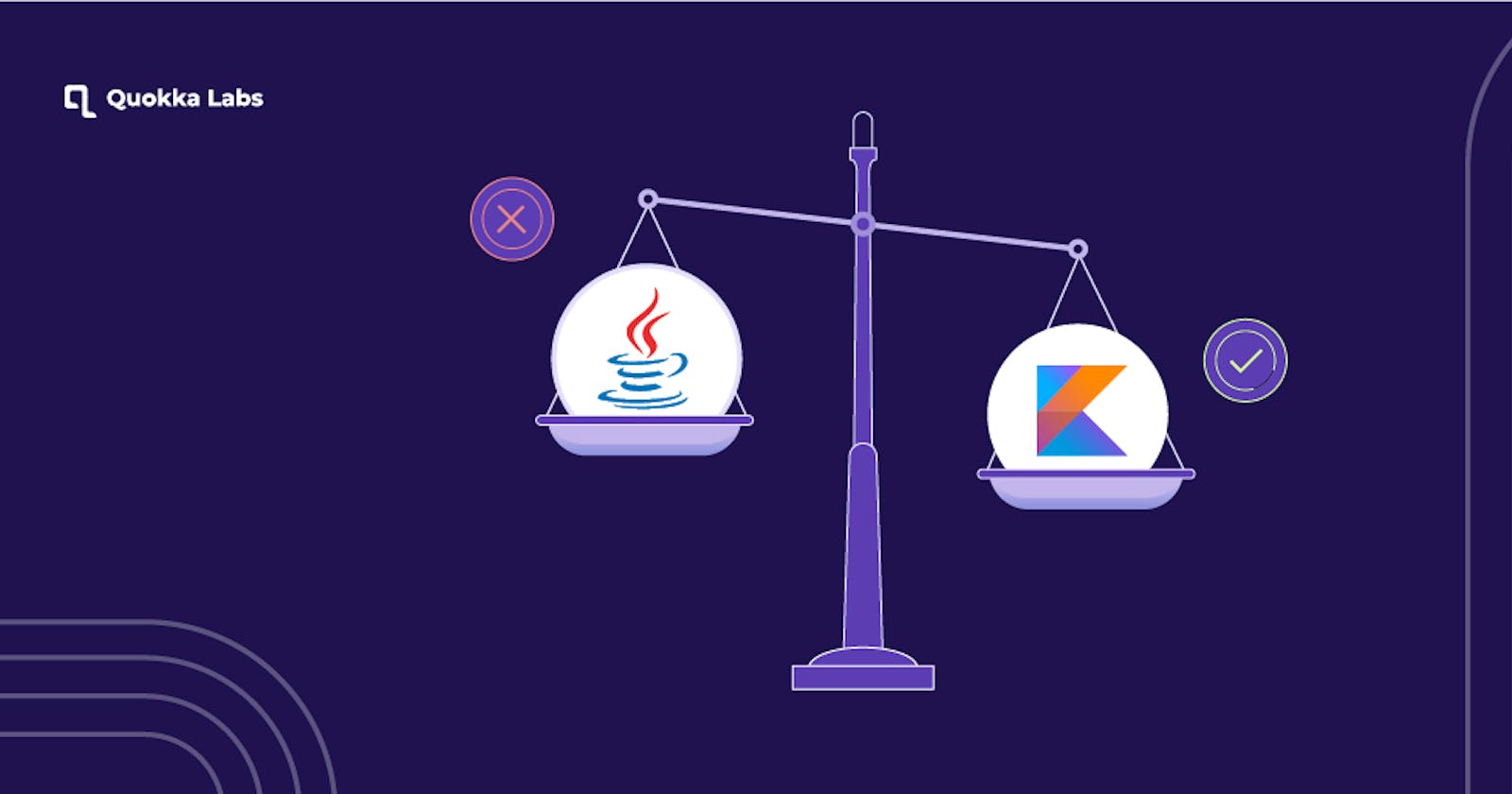Why Choose Kotlin Over Java For Backend Development?
Do you know why users choose kotlin over java for backend development?
We all know that Kotlin is mostly used for Android and front-end development. But later, Kotlin started getting used to back-end development, and now, it's quickly on its way to becoming the first choice for it. In this blog, you will learn about the top reasons for using Kotlin in back-end development. Before I explain why Kotlin is better for back-end development, let's get an overview of Kotlin and Java.
Quick Lines about Kotlin and Java
Kotlin
Kotlin is a cross-platform programming language developed by JetBrains, and Kotlin's goal was to get competitive with Java in terms of speedy compilation. But Kotlin is a newer programming language than the Java programming language. Later, Kotlin became stably famous over Java and was increasingly promoted by Google.
Java
Java is an object-oriented programming language that Sun Microsystems developed in 1995. Later, Oracle acquired the company in 2010. Java is the universal programming language used in various developments, including back-end development, game development, Big-data, IoT apps, and more. Now let's look closely at the main scenario: why choose Kotlin over Java for back-end development? Below I have listed the top reasons for it.
Top Reasons why to choose Kotlin over Java
Piece-of-Cake code
Kotlin is a comparably more straightforward coding language than Java because it doesn't need to use semicolons in its program. It makes it clear and easy to understand. On the other hand, Java is not an easy language where there are easy chances to get bugs on. Here, Kotlin's code is concise, and there are fewer chances of errors during compiling and runtime. Also, Kotlin provides a simple way to use mutable and immutable declarations for different data structures. It makes it super helpful in back-end development too.
Compatible with Java
Kotlin's best advantage is that Kotlin can exchange information with Java in several ways. Also, Java and Kotlin code can be in the same project, and the libraries of Java can be in Kotlin projects. It makes Kotlin even more powerful and compatible. Many Java frameworks, including some sophisticated frameworks, are compatible with Kotlin in addition to the libraries. Without taking any significant steps, such as changing a complete project to Kotlin, you can use Kotlin from Java. The fact that developers don't need to learn a new language thoroughly is a significant benefit. Anyone familiar with Java will also be able to code in Kotlin. It's simple to convert Java to Kotlin. The only thing needed to convert Java to Kotlin is a Kotlin plugin for IntelliJ or Android Studio.
The Same Task at a Shorter Program
Static-typed languages like Kotlin are straightforward to read and write. It is far shorter than Java's code for the identical issue. It improves the language's readability for humans and makes debugging simpler. Compared to Java, Kotlin's code is substantially smaller and simplifies the development process. The sleek IDE of Kotlin is one factor in this. In conclusion, your back-end development code will be super concise and less error-prone.
The Medicine for Java's Pain
The most significant pain point in Java is the null pointer. Kotlin attempted to solve this issue like a boss and was successful. Kotlin borrowed things from different languages like C# and Scala to solve difficulties with Java. It is thought to have had a significant impact on the creation of Kotlin. It incorporates examples from the Pascal programming language. Kotlin also supports elements like parameter lists and variable declarations that include the data type after a variable. Well, your valuable back-end code will not be wasted!
Eliminating the Billion Dollar Mistake: Null reference
It is one of the significant issues with Java, known as NullPointerException or, in short, NPE. But Kotlin is here to eliminate it from the code. If you are into Back end development with Kotlin, you can check out: -
How to Use Kotlin For Back-End Development?
A reduced boilerplate is unquestionably an advantage
As stated earlier, Kotlin reduces lots of code or concisely makes code, reducing errors, and you don't have to look at it again. It is designed to work at the enterprise level.

Delay in Initializing Properties
To delay the initialization of a variable, the modifier "lateinit" is used. It causes the variable not to initialize but to drop at the end. So, "lateinit" helps to reduce the number of unnecessary checks.
Example:
@Mock
lateinit var myRepository: MyRepository
In this case, to inject a variable at the end,
@Inject
lateinit var myVar: MyObject
Kotlin Got Variable immutability
In Kotlin, to declare a variable, "val" creates an immutable variable. But, this is not the same case in Java. In Java, developers must add one more word, "final." If you think you need a mutable variable, you must add "var" to make it a mutable variable.
In a few cases, if "val" is used, there will be a compile error, but if "var" is used, then no error will be shown in the development. So, overall, this helps back-end development go error-free.
Possibility for limiting Types of classes
Kotlin gets another advantage here. Kotlin provides a way to limit the types of classes from a restricted set. Let's see the below example.
sealed class Operation {
class Add(val value: Int) : Operation()
class Subtract(val value: Int) : Operation()
}
We can simply use "when" for each type, like in the example below.

Generally, in back-end development, there is a system to track the behavior of users called "analytics tracking." It also helps to maintain consistency in all events.
Final Words
Suppose you have gone through all the reasons listed above. In that case, I am sure you have some decent reasons to use Kotlin over Java in back-end development. I am also certain you are heading to Kotlin for Back end development.

